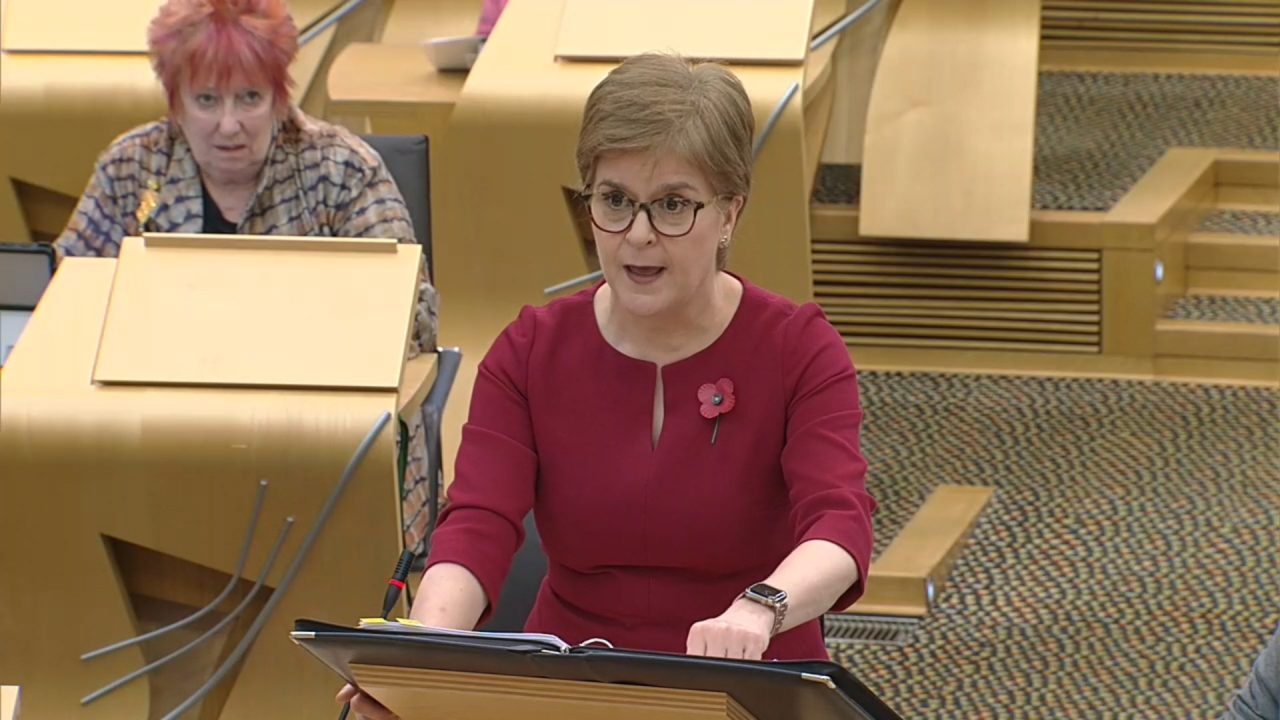Nicola Sturgeon has rejected an accusation she lied to the Scottish people about the country’s currency after independence in a fiery back-and-forth in Holyrood.
The First Minister responded to questions from Douglas Ross following a report in the Times that Scotland would have to join the euro if it wished to be a member of the European Union.
Sturgeon’s Government last week published a paper on the economic and currency policy of an independent Scotland, saying the country would continue to use Sterling until a new Scottish pound was established.
But an unnamed EU source told the newspaper it would be “no euro, no entry” for an independent Scotland, with another three reported to back the same view.
In a fiery exchange during First Minister’s Questions on Thursday, the Scottish Conservative leader asked: “Who’s lying to the Scottish people, the European Union or Nicola Sturgeon?”
Sturgeon responded citing a number of sources, including former prime minister David Cameron and the ex-president of the European Commission, holding the view that acceptance of the Euro was not a necessity to joining the union.
She added: “Many countries in the European Union still use their own currency.”
Replying to shouts of “name them”, she continued: “Bulgaria, Czechia, Hungary, Poland, Romania and Sweden – a member state since 1995 still uses its own currency.”
The First Minister went on to say she “welcomed” such a debate on the currency of an independent Scotland, challenging Ross to “have a referendum and let’s have these debates with the Scottish people”.
Ross said Sturgeon’s answer was “desperate stuff”.
“The First Minister’s big plan is actually to break Scotland away from by far our biggest trading partner – the United Kingdom – with nothing to show for it, in the middle of a global inflation and cost-of-living crisis,” he said.
“And she wants to put businesses and families through that in the next 12 months.”
Ross went on to attack the independence paper more widely, saying it would result in “permanent chaos”.
He said: “The First Minister’s plan to escape the temporary issues of the past month is to create permanent chaos with jobs, mortgages, pensions and public services.
“(Prime Minister) Rishi Sunak is fixing recent mistakes – the First Minister would wreck our economy for good.”
He claimed independence would result in “permanent austerity”, “permanent higher taxes” and “permanent economic chaos”.
Sturgeon responded: “It is because I am focusing on people, businesses and communities and what is best for them – their wellbeing and their prosperity – that I want to see Scotland become independent, in charge of our own affairs and our own destiny, not continuing to be dragged down the wrong paths by Westminster governments.”
It is less than a year until the Scottish Government’s proposed date for a second independence referendum and the UK’s highest court is considering whether Holyrood has the power to organise the vote itself.
Amid a series of papers mapping out the SNP’s plans for Scotland after a separation from the rest of the UK and the debate over the country’s future heating up once again, there is also division about the use of a particular word – Scexit.
Its use among opponents of Scottish independence has led to criticism that it is politically charged in itself.
Read more here: What does Scexit mean and why does it divide opinion?
Follow STV News on WhatsApp
Scan the QR code on your mobile device for all the latest news from around the country





























